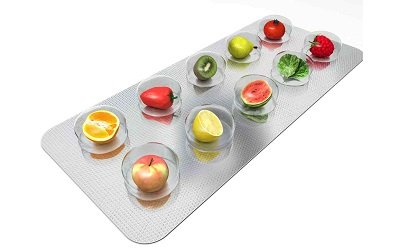Inside BENEO’s new pulse plant: pioneering sustainable protein from faba beans
Nutraceuticals can be labelled best as health supplements. This category of products can provide definite health benefits – including preventive. The nutraceuticals flourished in India from the 1990s, prior to which this segment was an unknown entity.
Way back in India till 1989, there were only a handful of products – antioxidants (just two brands) and ginseng. This was followed up in the 1990s onwards by a spate of launches including omega-3 fatty acids, chondroprotectives, Evening Primrose oil, essential phospholipids etc.
The confusion amongst the healthcare industry, medical professionals, researchers and dieticians alike is considering nutritionals like vitamins, minerals and proteins as nutraceuticals. The basis for this is most such personnel have never been exposed to strict nutraceuticals – leave alone ‘handling’ such products. For example, in any ‘nutraceutical forum’ when dieticians present their focused topics are wholesome food, junk food and inadequacy of vitamin/mineral intake by the Indian population.
The same is true for qualified medical professionals who are least aware of the nutraceutical options available for tackling diseases and disorders in their patients. One of my patients with life-threatening cirrhosis was opined by a reputed gastroenterologist as a hopeless case and advised to live his remaining life ‘well’ in his village. When essential phospholipids were advised, and the patient religiously consumed the same, he went on to live for over 3 years (died thereafter unfortunately due to a non-related ailment).
Allopaths by and large are not willing to understand the merits of Ayurveda approaches, and Ayurveda physicians unwilling to accept modern medicine principles of management. In the same way most current healthcare providers (irrespective of their specialisation fields) are not open to accepting nutraceutical way of providing better disease/disorder management. Sole reliance on clinical studies (most of which are short-term) and various association guidelines cannot be deciding factor in embracing nutraceuticals. The benefit of a nutraceutical has emerged from epidemiological evidences and thorough understanding of the mechanism of each ingredient and thereby the potential to provide relevant benefit must be the overriding factor.
Besides nutraceuticals, certain vitamins and minerals and amino acids do exert unique benefits for certain ailments besides their nutritive value. For this, the appropriate quantities of such ‘nutrients’ are to be incorporated. For example, Vitamin E as an antioxidant requires to be taken as 400 IU per day whilst the RDA mentions only 7.5 IU (which is merely sufficient for meeting nutritional requirement of this vitamin)! Hence, it is imperative that upper tolerable level (UTL) be scientifically considered whilst formulating en effective nutraceutical!
If the nutraceuticals are to provide significant option in healthcare management – especially to allay those affections for which allopathy has no solutions, their knowledge dissemination holds the key. Healthcare manufacturers and relevant associations and concerned experts must embark upon a mission of educating healthcare providers.
India has been a late entrant in the nutraceutical space and there is ample scope to gallop and catch up with the OTC healthcare segment products in regulated markets, and maybe even out beat them – considering we have additional lineage to offer in the form of ayurveuticals. As there is more and more awareness of the segment, there could be a separate curriculum set for such products within the pharmacology teaching in medical colleges.
The time is also ripe to recognise nutraceuticals as a different individual segment and separate it from the food business similar to US. Just like Ayurveda products are regulated by a different body nutraceuticals too deserve justice by having its own monitoring body with handpicked knowledgeable and experienced personnel in this space. This will truly bring about a sea change.
Hail 2020 for nutraceuticals.

